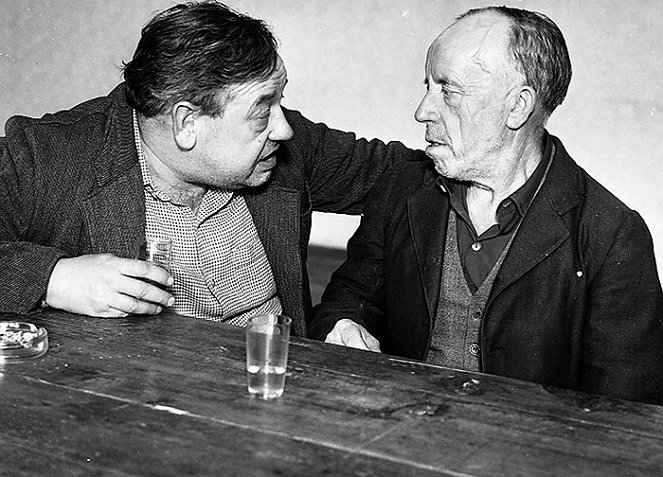Directed by:
Vojtěch JasnýScreenplay:
Vojtěch JasnýCinematography:
Jaroslav KučeraComposer:
Svatopluk HavelkaCast:
Vlastimil Brodský, Radoslav Brzobohatý, Vladimír Menšík, Waldemar Matuška, Drahomíra Hofmanová, Pavel Pavlovský, Václav Babka, Josef Hlinomaz (more)Plots(1)
Jasný’s autobiographical All My Good Countrymen is one of the wonders of the Czech New Wave. Its deceptively simple narrative weaves a complex tapestry around the interwoven lives of a group of villagers immediately following the ‘socialization’ of Czechoslovakia in 1948. The film remains a potent reminder of lives, friendships and idealism lost under totalitarian rule. (Second Run)
(more)Reviews (7)
It is not so much the uncontrolled recklessness of nationalization, but rather the concentrated nature of the little Czech man in the form of a Beskydy village that becomes the subject of criticism (but also celebration) in this epic fresco by Jasný. A third of the way through it takes away your words, then your breath, and finally, your superlatives. I have never experienced such huge applause from such a small number of people in the movie theater.
()
Great film, which - considering the time it was made - surprisingly and critically shows how life was in the countryside and what relationships existed there. In the movie, you can see a lot that there was a long preparation before the actual filming, which paid off. The fates of individual characters interest you, and although Radek Brzobohatý's name is mentioned the most in connection with the film, Vladimír Menšík completely won me over.
()
Sure, the basic elements of the film are good to excellent, but the purely contemporary faces, hairstyles, make-up, and costumes of a good half of the cast unfortunately, reduce this project to a period average. If we want to deal with the past, it is necessary to convince the viewer of the time in which the story takes place, and not to make the excuse that a few non-actors as decor is enough.
()
Unquestionably the best film by Vojtěch Jasný and probably the best film dedicated to the subject of collectivization of the Czech countryside. Jasný filmed it after several years because the script could not pass the contemporary censorship for understandable reasons. It was only during the period of reforms in the late 60s and Dubček's intervention that it finally succeeded. The film shows the creative affinity between Vojtěch Jasný and another significant Czech director, Karel Kachyňa. It is similarly poetic, with a focus on visual composition, and a careful selection of actors and their direction. It is interesting that even though the film does not delve deep into the bleak conditions of the 50s, because the political persecution and societal atmosphere were actually worse, there has not been a film made in today's free creative conditions that could surpass or even come close to this one... Overall impression: 95%.
()
A classic that I was afraid to watch for a very long time (completely unnecessarily, as it happens). There is no celebration of the rural spirit of life; there is only the honesty of how a one-of-a-kind sort of stubbornness can prove an asset for some, and evokes an almost surprisingly sad expression on the viewer's face. Thanks to the archetypal characters of the imposing František or the bohemian Zášinek, Vojtěch Jasný goes right to the heart of the matter and the few unnecessary parables that don't exactly land do not hinder him one bit.
()


Ads